Policy Brief: Climate Change's Impact on Health and Healthcare Access
VerifiedAdded on 2022/08/31
|6
|1197
|41
Report
AI Summary
This policy brief examines the impact of climate change on public health in the United States, highlighting the failure of existing policies to address health disparities related to heat-related illnesses, respiratory infections, and other climate-sensitive diseases. The report identifies vulnerable populations, including young and older individuals, non-US citizens, and those with limited access to healthcare, who are disproportionately affected by climate change. It analyzes the lack of equitable access to healthcare services and racial discrimination as key factors exacerbating health inequalities. The policy brief recommends tracking deaths among non-US citizens, implementing interventions to reduce heat exposure, and reducing cultural and language barriers to improve healthcare access. It emphasizes the need for stakeholder collaboration, including policymakers, government agencies, and healthcare professionals, to create a more inclusive and effective climate change policy that protects all citizens and reduces mortality rates associated with climate change. The report also discusses the positive impact of policy changes on healthcare delivery systems, including early screening, care provision regardless of demographic factors, and nursing advocacy for improved access.
1 out of 6
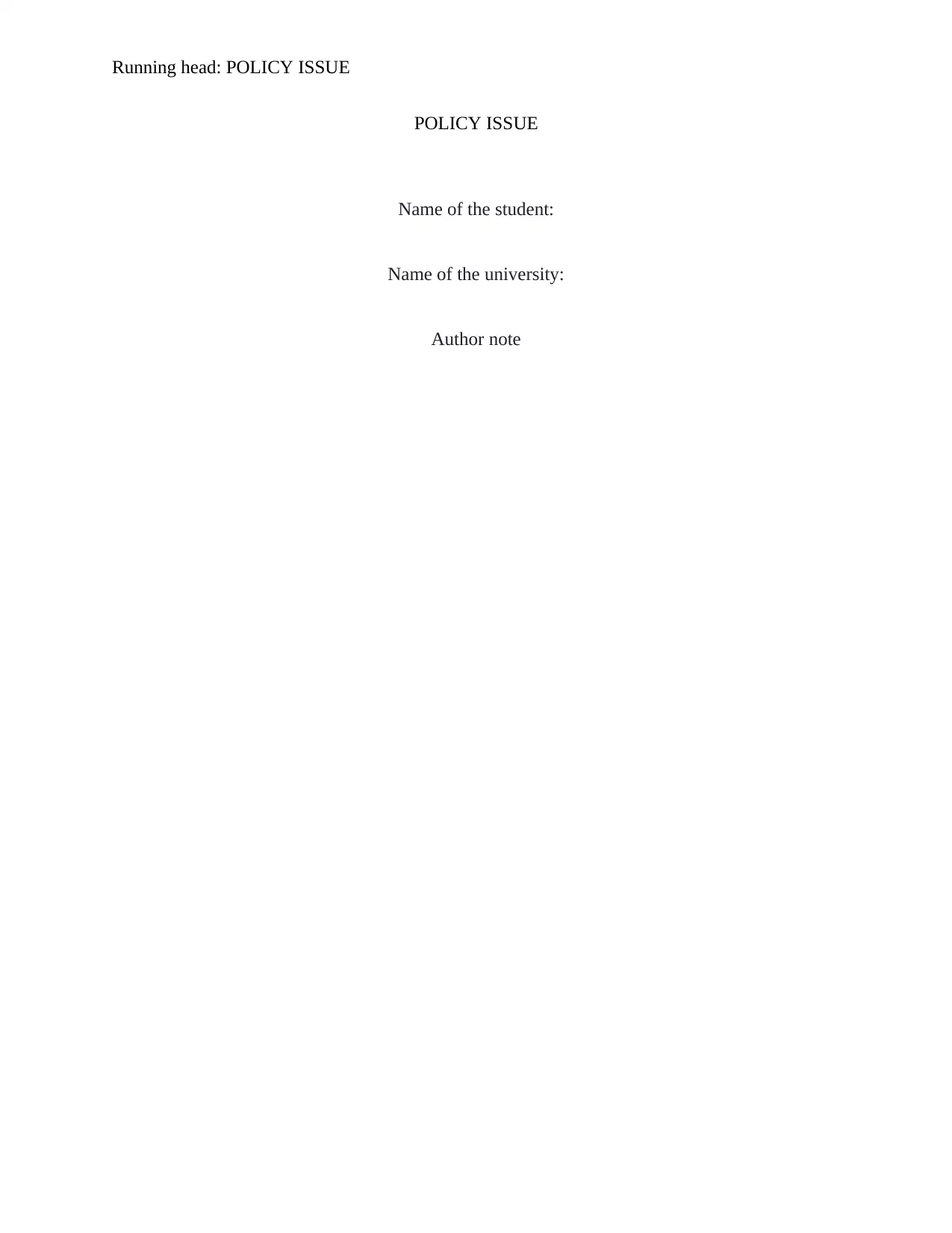
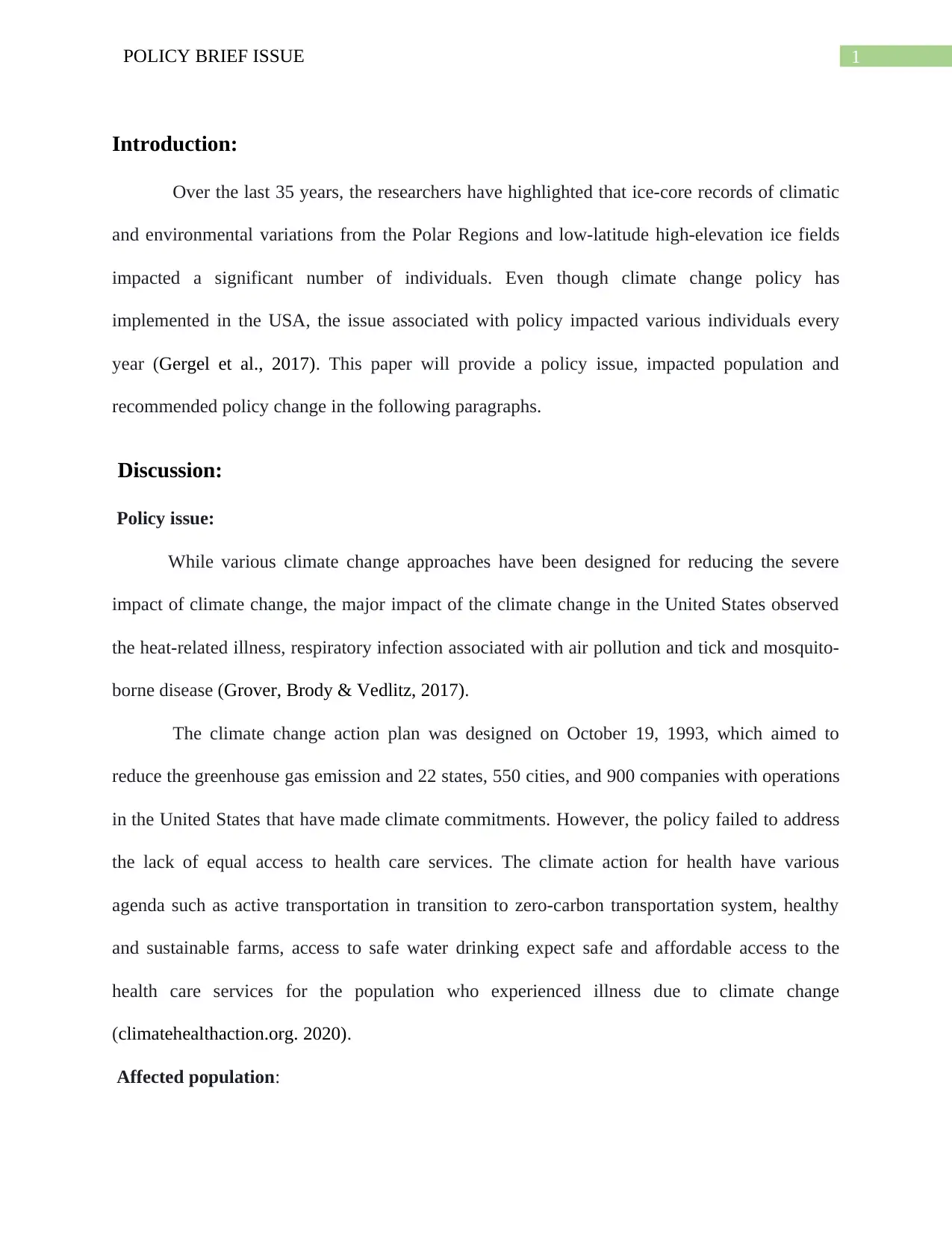
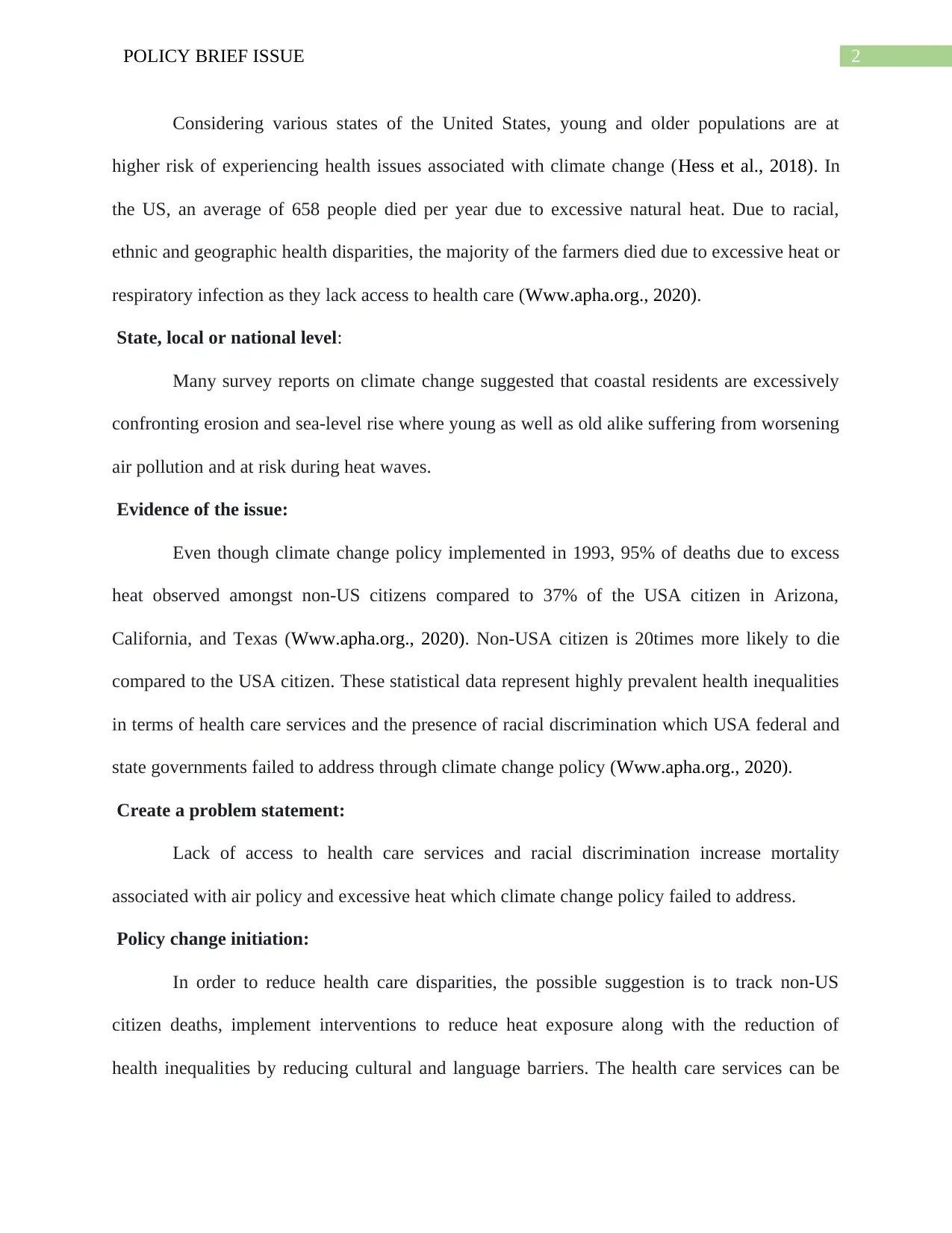

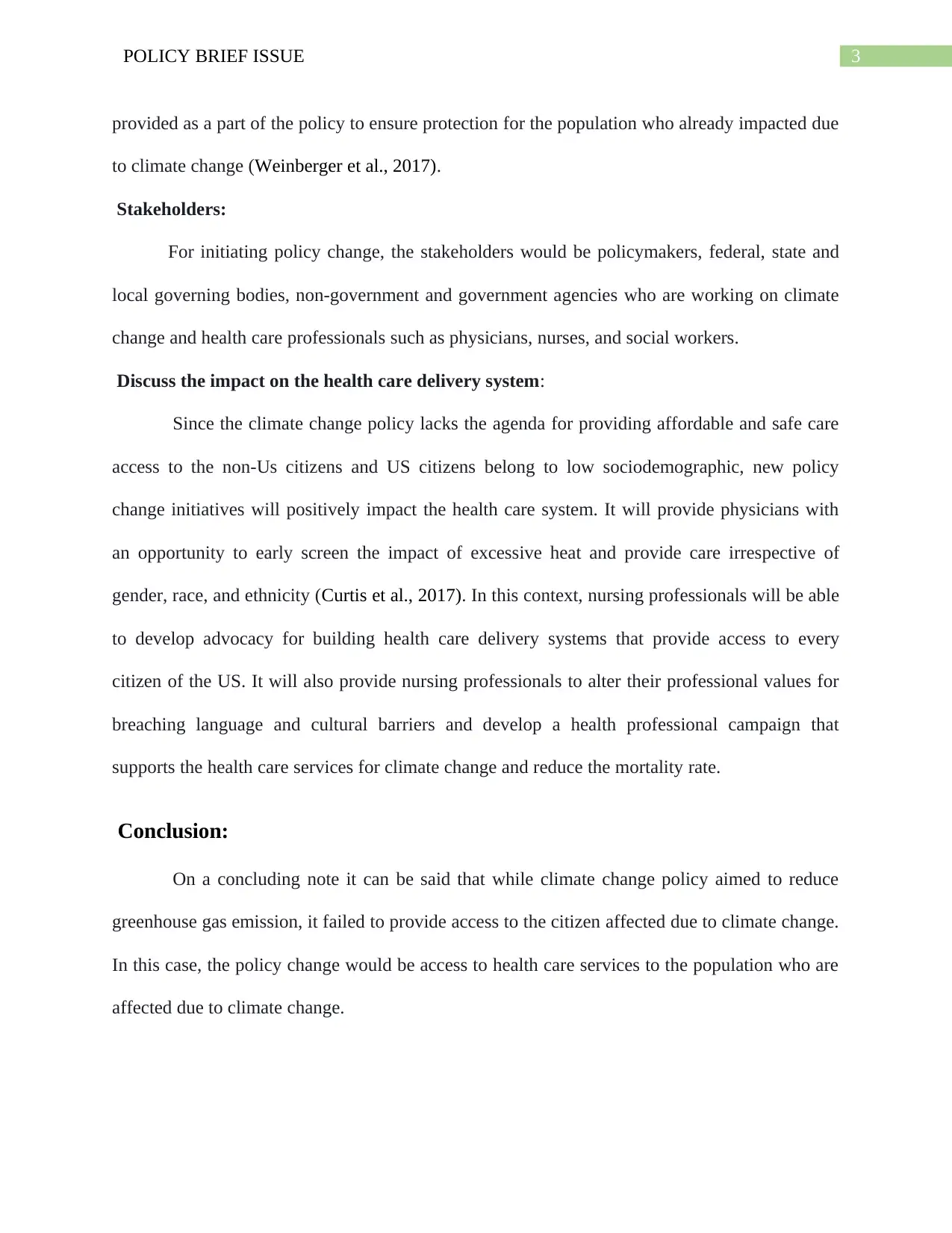
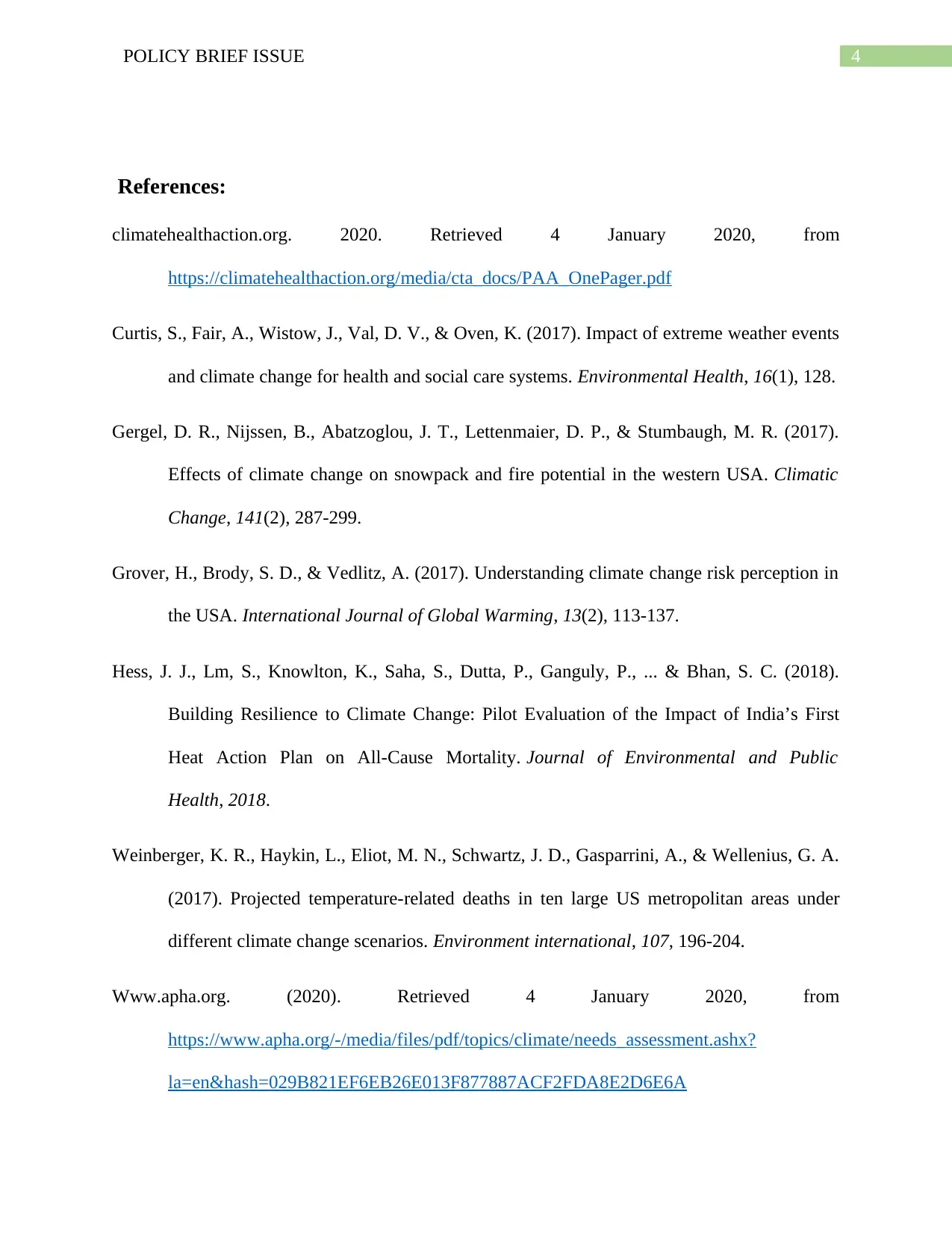







![[object Object]](/_next/static/media/star-bottom.7253800d.svg)